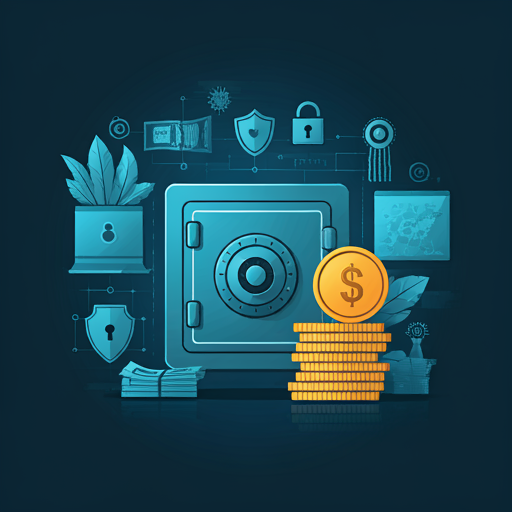Introduction to Cybersecurity in Finance
The Importance of Cybersecurity
In the financial sector, cybersecurity is crucial for protecting sensitive data . He must understand that breaches can lead to significant financial losses. The integrity of transactions relies heavily on secure systems. A single vulnerability can compromise an entire network. This highlights the need for robust security measures. Financial institutions must prioritize cybersecurity to maintain trust. Trust is essential in finance. As threats evolve, so must the strategies to combat them. Staying informed is key.
Overview of Financial Cyber Threats
Financial cyber threats encompass various malicious activities targeting institutions. He should recognize that phishing attacks are prevalent. These attacks often eaploit human error to gain access. A single mistake can lead to significant data breaches. Ransomware is another serious concern, crippling operations for ransom. This can result in substantial financial losses. Additionally, insider threats pose risks from within organizations. Trust is sometimes misplaced. Understanding these threats is essential for effective risk management. Awareness is the first step.
Understanding Cryptocurrency Vulnerabilities
Common Security Flaws in Cryptocurrency Platforms
Cryptocurrency platforms often exhibit significant security flaws. He must be aware of inadequate encryption methods. Weak encryption can expose sensitive user data. This vulnerability is frequently exploited by hackers. Additionally, poor access controls can lead to unauthorized transactions. A single breach can compromise an entire system. Furthermore, many platforms lack comprehensive security audits. Regular audits are essential for identifying risks. Understanding these flaws is crucial for users. Knowledge is power in this space.
Case Studies of Major Breaches
Several high-profile breaches have exposed vulnerabilities in cryptocurrency platforms. He should consider the Mt. Gox incident, where hackers stole 850,000 bitcoins. This breach highlighted the risks of inadequate security measures. A lack of proper cold storage was a critical flaw. Similarly, the Coincheck hack resulted in the loss of $530 million. Poor security protocols allowed attackers to work weaknesses. These cases demonstrate the importance of robust security frameworks. Awareness of these incidents is vital for users. Knowledge can prevent future losses.
Best Practices for Securing Cryptocurrency Assets
Utilizing Hardware Wallets
Utilizing hardware wallets is essential for securing cryptocurrency assets. He must recognize that these devices store private keys offline. This significantly reduces the risk of online attacks. Unlike software wallets, hardware wallets are less vulnerable to malware. Additionally, users should ensure they purchase wallets from reputable manufacturers. Counterfeit devices can compromise security. Regularly updating the wallet’s firmware is also crucial. Updates often include security enhancements. Understanding these practices is vital for asset protection. Security is paramount in cryptocurrency management.
Implementing Strong Passwords and 2FA
Implementing strong passwords and two-factor authentication (2FA) is critical for securing cryptocurrency assets. He should create complex passwords that combine letters, numbers, and symbols. Simple passwords are easily compromised. Additionally, enabling 2FA adds an extra layer of security. This requires a second verification step, often through a mobile device. Relying solely on passwords is insufficient. Regularly updating passwords is also advisable. Frequent changes enhance security. Awareness of these practices is essential for protection. Security should always be a priority.
Regulatory Framework and Compliance
Global Regulations Impacting Cybersecurity
Global regulations significantly impact cybersecurity practices in finance. Key regulations include the General Data Protection Regulation (GDPR) and the Payment Card Industry Data Security Standard (PCI DSS). These frameworks establish guidelines for data protection and security measures. Compliance is mandatory for financial institutions. Non-compliance can result in hefty fines. He must understand the implications of these regulations. Awareness is crucial for effective risk management. Regulations evolve with emerging threats. Staying informed is essential for compliance.
Compliance Standards for Cryptocurrency Exchanges
Compliance standards for cryptocurrency exchanges are essential for operational integrity. He must adhere to Anti-Money Laundering (AML) and Know Your Customer (KYC) regulations. These standards help prevent illicit activities. Non-compliance can lead to severe penalties. Additionally, exchanges should implement robust security measures. This includes regular audits and risk assessments. Such practices enhance user trust and platform reliability. Understanding these standarrs is crucial for success. Knowledge is vital in this evolving landscape.
The Role of Blockchain Technology in Security
How Blockchain Enhances Security
Blockchain technology enhances security through decentralization. He should understand that data is stored across multiple nodes. This makes it difficult for attackers to alter information. Each transaction is encrypted and linked to the previous one. This creates a secure chain of records. Additionally, consensus mechanisms validate transactions before they are added. This reduces the risk of fraud. Transparency is another key feature of blockchain. Users can verify transactions independently. Trust is built through this transparency.
Limitations of Blockchain Security
Despite its advantages, blockchain security has limitations. He must recognize that the technology is not immune to attacks. For instance, 51% attacks can compromise network integrity. This occurs when a single entity controls the majority of nodes. Additionally, smart contracts can contain vulnerabilities. Flaws in code can lead to exploitation. User error also poses significant risks. Mistakes in handling private keys can result in loss. Understanding these limitations is crucial for effective risk management. Awareness can prevent costly mistakes.
Future Trends in Cybersecurity for Finance
Emerging Technologies and Their Impact
Emerging technologies ar reshaping cybersecurity in finance . He should consider the role of artificial intelligence in threat detection. AI can analyze vast amounts of data quickly. This enhances the ability to identify anomalies. Additionalmy, blockchain technology is gaining traction for secure transactions. It offers transparency and reduces fraud risks. Furthermore, quantum computing poses both opportunities and challenges. It could break current encryption methods. Understanding these trends is indispensable for future preparedness. Awareness is key in this evolving landscape .
Preparing for Future Cyber Threats
Preparing for future cyber threats requires proactive strategies. He must invest in advanced security technologies. These technologies can detect and mitigate risks effectively. Regular training for employees is also essential. Human error often leads to security breaches. Additionally, conducting frequent security audits helps identify vulnerabilities. Awareness of emerging threats is crucial for adaptation. Staying informed can prevent significant losses. Knowledge is power in cybersecurity.
